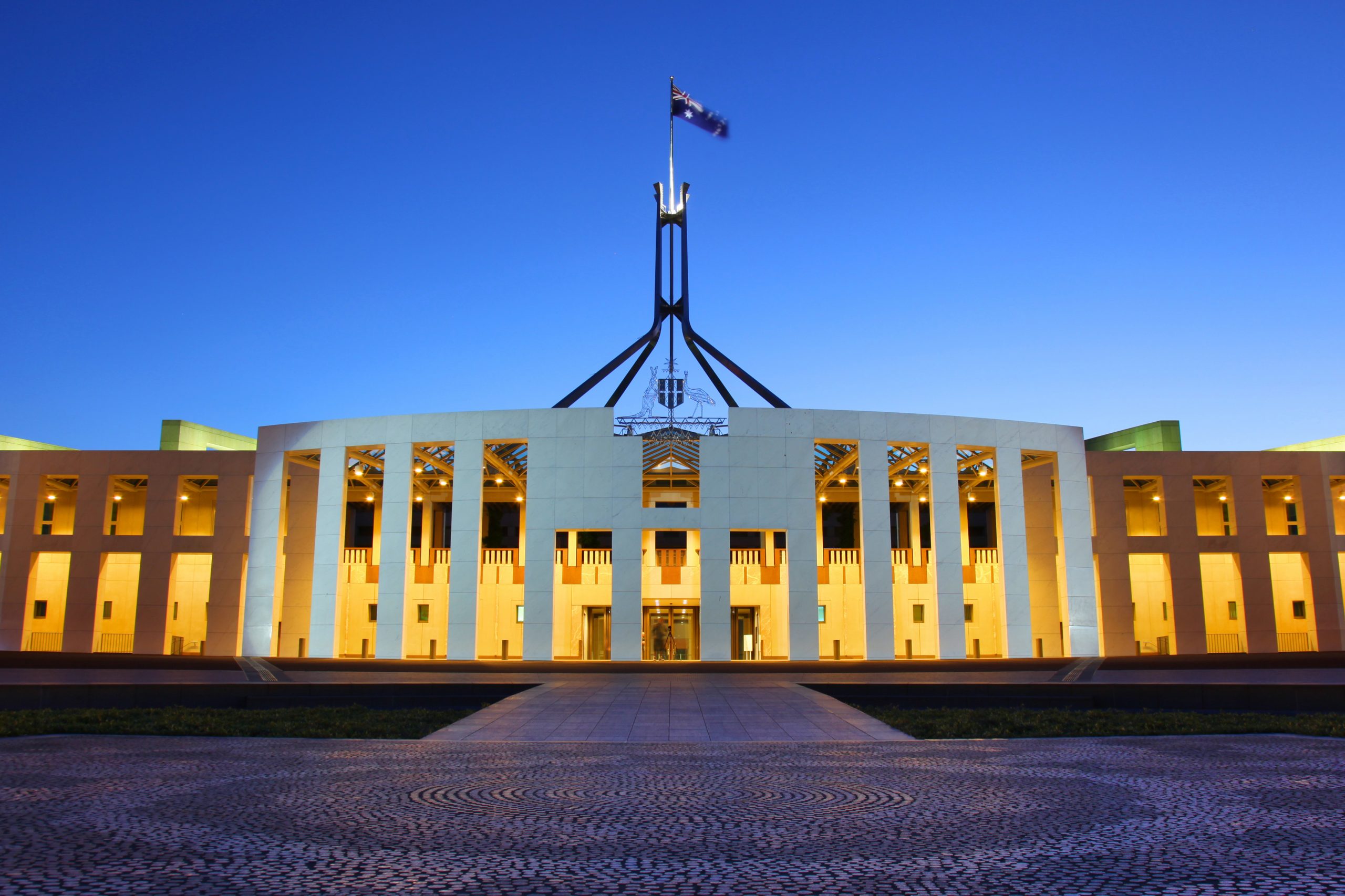
The Federal Government handed down its 2024-25 budget last night delivering some cost-of-living relief and Stage 3 tax cuts in the hope of tackling inflation.
It is the second year in a row the government has delivered a budget surplus ($9.3 billion for 2023-24). However, it is predicted that the next three financial years will each have higher deficits than the government had expected ($18.8 billion, $35.1 billion and $19.5 billion respectively).
Here is a breakdown of some of the key measures from a taxation perspective.
Personal Income Tax
Stage 3 tax cuts
The Stage 3 personal income tax cuts will commence from 1 July 2024 as previously legislated. All taxpayers will receive a tax cut with an average tax cut of $1,888. The Federal Government predicts the cost will be $359 billion over 10 years.
From 1 July this year, the Federal Government will:
- Reduce the 19 per cent tax rate to 16 per cent
- Reduce the 32.5 per cent tax rate to 30 per cent
- Increase the income threshold above which the 37 per cent tax rate applies from $120,000 to $135,000
- Increase the income threshold above which the 45 per cent tax rate applies from $180,000 to $190,000
The revised Stage 3 tax rates for the 2024-25 and later income years are as follows:
| Taxable Income (Tax Brackets) | Marginal Tax Rate | Tax Liability Calculation |
| $0 – $18,200 | Nil | Nil |
| $18,201 – $45,000 | 16% | $0.16 for each $1 over $18,200 |
| $45,001 – $135,000 | 30% | $4,288 + $0.30 for each $1 over $45,000 |
| $135,001 – $190,000 | 37% | $31,288 + $0.37 for each $1 over $135,000 |
| $190,001 and over | 45% | $51,368 + $0.45 for each $1 over $190,000 |
Businesses
Small Business Support – $20,000 instant asset write-off
The Federal Government announced an extension of the $20,000 instant asset write-off threshold for 12 months.
The current measure allows for small businesses, with aggregated annual turnover of less than $10 million, to be able to immediately deduct the full cost of eligible assets costing less than $20,000 that are first used or installed ready for use between 1 July 2024 and 30 June 2025. The $20,000 threshold will apply on a per asset basis, so small businesses can instantly write off multiple assets.
Assets valued at $20,000 or more (which cannot be immediately deducted) can continue to be placed into the small business simplified depreciation pool and depreciated at 15% in the first income year and 30% each income year thereafter.
The provisions that prevent small businesses from re-entering the simplified depreciation regime for five years if they opt-out will continue to be suspended until 30 June 2025.
Small Business Support – Small Business Initiatives
The Federal Government announced the provision of funding of $41.7 million over four years to support small business. The funding will support the following initiatives:
| Objective | Support to be provided |
| Improving payment times to small businesses | Providing increased resourcing for the Payment Times Reporting Regulator so that it can deliver its expanded functions, which include naming slow paying businesses; and funding fit-for-purpose Information and communications technology infrastructure |
| Supporting mental health and financial wellbeing of small business owners |
|
| Ensuring confidence in the franchising sector which comprises thousands of small businesses, employs 520,000 people and contributes more than $135 billion to the Australian economy each year | In response to the 2023 Schaper Review of the Franchising Code of Conduct, the Government is providing $3 million to:
|
| Providing small business with better access to justice. The ASBFEO assists and advocates for small businesses including helping to resolve disputes | Funding of $2.6 million will be provided to the Australian Small Business and Family Enterprise Ombudsman (ASBFEO to expand its service offering |
Small Business Support – Small Business Energy Incentive
The Federal Government will also provide energy bill relief in the form of a $325 rebate to small businesses (turnover less than $10 million) in respect of their 2024-2025 bills. The rebate will be paid to the small business’ energy provider, meaning the businesses will not receive the cash directly, rather by way of a discount from their electricity provider.
Superannuation Guarantee
The compulsory Super Guarantee Contribution rate paid by businesses to their employees will increase from 11% to 11.5% as previously legislated.
The below outlines the gradual increase in Super Guarantee over the next 2 years:
| Tax Year | SCG Rate |
| 1 July 2024 – 30 June 2025 | 11.5% |
| 1 July 2025 – 30 June 2026 | 12.00% |
Discretion not to offset old tax debts
The Federal Government proposed to amend tax law to give the commissioner a discretion not to use a taxpayer’s refund to offset old tax debts that were on hold prior to 1 January 2017.
This discretion will apply to individual, small businesses and not-for-profits, and will maintain the Commissioner’s current administrative approach.
Superannuation
Superannuation on Government Paid Parental Leave
The Federal Government announced that it will pay Superannuation on 20 weeks of government-funded parental leave from July 2025.
Eligible parents will receive an additional payment based on the Superannuation Guarantee rate (12 per cent from 1 July 2025).
Tax on superannuation balances over $3m start date of 1 July 2025 confirmed
As previously announced, the Government will reduce the tax concessions available to individuals with a total Superannuation balance exceeding $3 million, from 1 July 2025.
Individuals with a total Superannuation balance of less than $3 million will not be affected.
It will bring the headline tax rate to 30%, up from 15%, for earnings corresponding to the proportion of an individual’s total Superannuation balance that is greater than $3 million. This will apply to the net growth in a members’ Superannuation assets whether the growth is realised or unrealised. Earnings relating to assets below the $3 million threshold will continue to be taxed at 15% or 0% if held in a retirement pension account.
Superannuation Pensions – Minimum withdrawal requirements
The minimum pension requirements will remain at the full rate for the year ending 30 June 2024 and 30 June 2025.
Age Minimum withdrawal %
Under 65 4.00%
65-74 5.00%
75-79 6.00%
80-84 7.00%
85-89 9.00%
90-94 11.00%
95 or more 14.00%
Superannuation Contribution Caps
Individual contribution caps from 1 July 2024 are increasing as a result of indexation in line with the Average Weekly Ordinary Times Earnings:
- Concessional contributions will increase from $27,500 to $30,000
- Non-Concessional contributions will increase from $110,000 to $120,000
Non-concessional Contribution bring forward provisions will also be increasing from 1 July 2024
| Total Super Balance as at 30 June 2023 | NCC bring forward rules |
| Less than $1.68 million | $330,000, 3 years bring forward period |
| $1.68 million or more but less than $1.79 million | $220,000. 2 year bring forward period |
| $1.79 million or more but less than $1.9 million | $110,000, no bring forward period |
| $1.9 million or more | $0, not eligible to make NCC’s |
| Total Super Balance as at 30 June 2024 | NCC bring forward rules |
| Less than $1.68 million | $360,000, 3 years bring forward period |
| $1.68 million or more but less than $1.79 million | $240,000. 2 years bring forward period |
| $1.79 million or more but less than $1.9 million | $120,000, no bring forward period |
| $1.9 million or more | $0, not eligible to make NCC’s |
Pharmacy
The Federal Government has announced a freeze on the cost of Pharmaceutical Benefits Scheme (PBS) medicine. Resisting the rise with inflation, there will be a 1-year freeze on the maximum cost of PBS prescriptions for everyone with a Medicare Card (until 1 January 2026) and a 5-year freeze for pensioners and other Commonwealth concession cardholders (until 1 January 2030).
The Federal Government also included $3.4 billion for new PBS listings which will decrease the cost paid for common medicines.
Further announcements include:
- $0.9 million to allow pharmacists to administer vaccines in residential aged care homes and residential disability services.
- The indexation of payments under NIPVIP from 1 July 2024 in line with indexation of the Medicare Benefits Schedule.
- $490 million to continue the National COVID-19 vaccination program.
- $11.1 million for eligible First Nations patients to have free or cheaper access to all PBS medicines.
International
Strengthening the foreign resident Capital Gains Tax Regime
The government has announced that it will strengthen the foreign resident Capital Gains Tax (CGT) regime to ensure foreign residents pay their fair share of tax in Australia. The rules include:
- Clarifying and broadening the types of assets on which foreign residents are subject to CGT
- Amending the point-in-time principal asset test t a 365-day testing period
- Requiring foreign residents disposing of shares and other membership interests exceeding $20 million in value to notify the ATO prior to the transaction being executed.
This measure is to ensure that Australian tax foreign residents on direct and indirect sales of assets with a close economic connection to Australian land.
Other
Energy bill relief for households
From 1 July 2024, a $300 rebate will be automatically credited to all household electricity bills. Households won’t receive the money directly; it will be applied by way of discount through by their electricity provider.
ATO Counter Fraud Strategy
As part of the 2024–25 Federal Budget, the Government announced that it will provide $187 million over four years from 1 July 2024 to the ATO to strengthen its ability to detect, prevent and mitigate fraud against the tax and superannuation systems.
Funding includes:
- $78.7 million for upgrades to information and communications technologies to enable the ATO to identify and block suspicious activity in real time
- $83.5 million for a new compliance taskforce to recover lost revenue and intervene when attempts to obtain fraudulent refunds are made
- $24.8 million to improve the ATO’s management and governance of its counter-fraud activities, including improving how the ATO assists individuals harmed by fraud
- $0.4 million over four years from 1 July 2024 to the Department of Finance to undertake a Gateway Review process over the life of the proposal to ensure independent assurance, oversight and delivery of the measure.
The government will also strengthen the ATO’s ability to combat fraud by extending the time the ATO has to notify a taxpayer if it intends to retain a business activity statement (BAS) refund for further investigation. The ATO’s mandatory notification period for BAS refund retention will be increased from 14 days to 30 days to align with time limits for non-BAS refunds.
Our full summary of the measures and start dates can be found here: Federal-Budget-2023-24-Summary
The Federal Government Budget papers can be found here: link: Budget documents | Budget 2024–25
We will provide more information once these measures have been legislated.
Should you have any questions or need any help ensuring you receive all available assistance, please reach out to our team and we will endeavour to do our best to assist.
The team at Rose Partners

